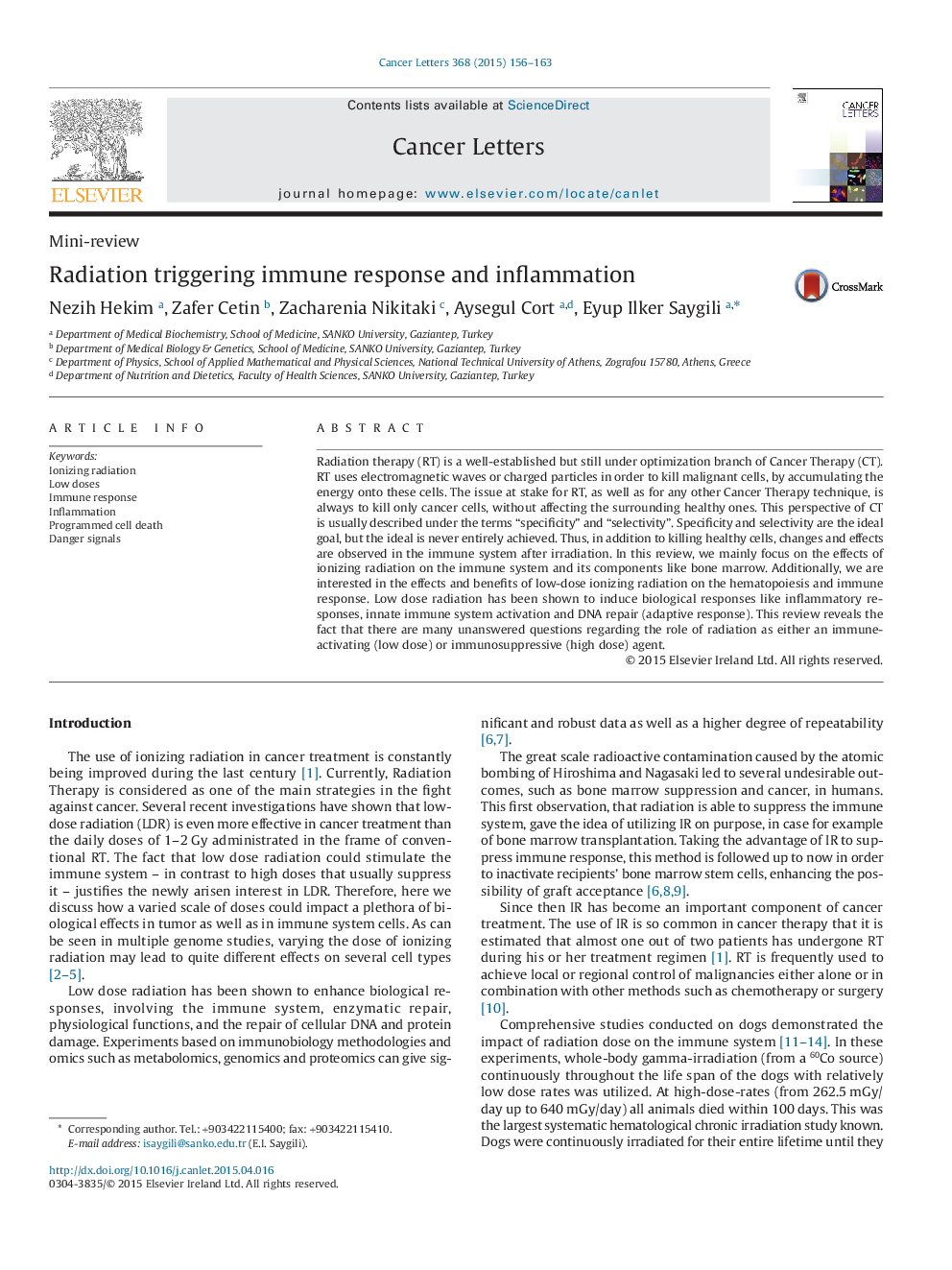| Article ID | Journal | Published Year | Pages | File Type |
|---|---|---|---|---|
| 10899400 | Cancer Letters | 2015 | 8 Pages |
Abstract
Radiation therapy (RT) is a well-established but still under optimization branch of Cancer Therapy (CT). RT uses electromagnetic waves or charged particles in order to kill malignant cells, by accumulating the energy onto these cells. The issue at stake for RT, as well as for any other Cancer Therapy technique, is always to kill only cancer cells, without affecting the surrounding healthy ones. This perspective of CT is usually described under the terms “specificity” and “selectivity”. Specificity and selectivity are the ideal goal, but the ideal is never entirely achieved. Thus, in addition to killing healthy cells, changes and effects are observed in the immune system after irradiation. In this review, we mainly focus on the effects of ionizing radiation on the immune system and its components like bone marrow. Additionally, we are interested in the effects and benefits of low-dose ionizing radiation on the hematopoiesis and immune response. Low dose radiation has been shown to induce biological responses like inflammatory responses, innate immune system activation and DNA repair (adaptive response). This review reveals the fact that there are many unanswered questions regarding the role of radiation as either an immune-activating (low dose) or immunosuppressive (high dose) agent.
Related Topics
Life Sciences
Biochemistry, Genetics and Molecular Biology
Cancer Research
Authors
Nezih Hekim, Zafer Cetin, Zacharenia Nikitaki, Aysegul Cort, Eyup Ilker Saygili,
